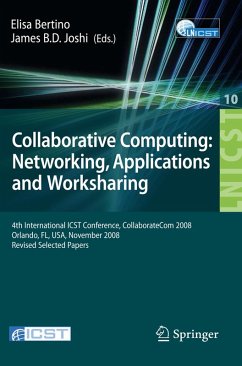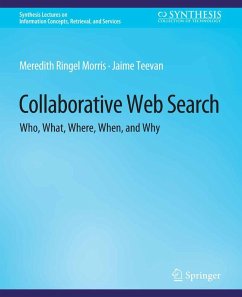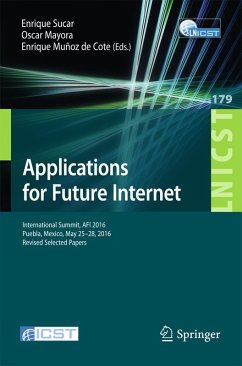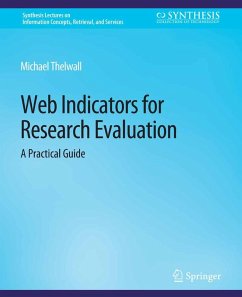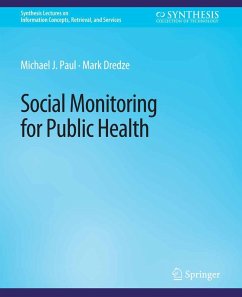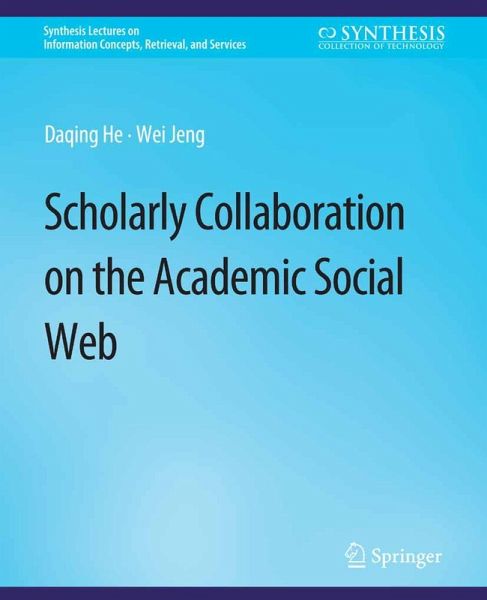
Scholarly Collaboration on the Academic Social Web (eBook, PDF)
Versandkostenfrei!
Sofort per Download lieferbar
Statt: 35,30 €**
26,95 €
inkl. MwSt.
**Preis der gedruckten Ausgabe (Broschiertes Buch)
Alle Infos zum eBook verschenkenWeitere Ausgaben:

PAYBACK Punkte
13 °P sammeln!
Collaboration among scholars has always been recognized as a fundamental feature of scientific discovery. The ever-increasing diversity among disciplines and complexity of research problems makes it even more compelling to collaborate in order to keep up with the fast pace of innovation and advance knowledge. Along with the rapidly developing Internet communication technologies and the increasing popularity of the social web, we have observed many important developments of scholarly collaboration on the academic social web. matioIn this book, we review the rapid transforn of scholarly collabor...
Collaboration among scholars has always been recognized as a fundamental feature of scientific discovery. The ever-increasing diversity among disciplines and complexity of research problems makes it even more compelling to collaborate in order to keep up with the fast pace of innovation and advance knowledge. Along with the rapidly developing Internet communication technologies and the increasing popularity of the social web, we have observed many important developments of scholarly collaboration on the academic social web. matioIn this book, we review the rapid transforn of scholarly collaboration on various academic social web platforms and examine how these platforms have facilitated academics throughout their research lifecycle-from forming ideas, collecting data, and authoring articles to disseminating findings. We refer to the term "academic social web platforms" in this book as a category of Web 2.0 tools or online platforms (such as CiteULike, Mendeley, Academia.edu, and ResearchGate) that enable and facilitate scholarly information exchange and participation. We will also examine scholarly collaboration behaviors including sharing academic resources, exchanging opinions, following each other's research, keeping up with current research trends, and, most importantly, building up their professional networks. Inspired by the model developed Olson et al. [2000] on factors for successful scientific collaboration, our examination of the status of scholarly collaboration on the academic social web has four emphases: technology readiness, coupling work, building common ground, and collaboration readiness. Finally, we talk about the insights and challenges of all these online scholarly collaboration activities imposed on the research communities who are engaging in supporting online scholarly collaboration. This book aims to help researchers and practitioners understand the development of scholarly collaboration on the academic social web, and to build up an activecommunity of scholars who are interested in this topic.
Dieser Download kann aus rechtlichen Gründen nur mit Rechnungsadresse in A, B, BG, CY, CZ, D, DK, EW, E, FIN, F, GR, HR, H, IRL, I, LT, L, LR, M, NL, PL, P, R, S, SLO, SK ausgeliefert werden.



